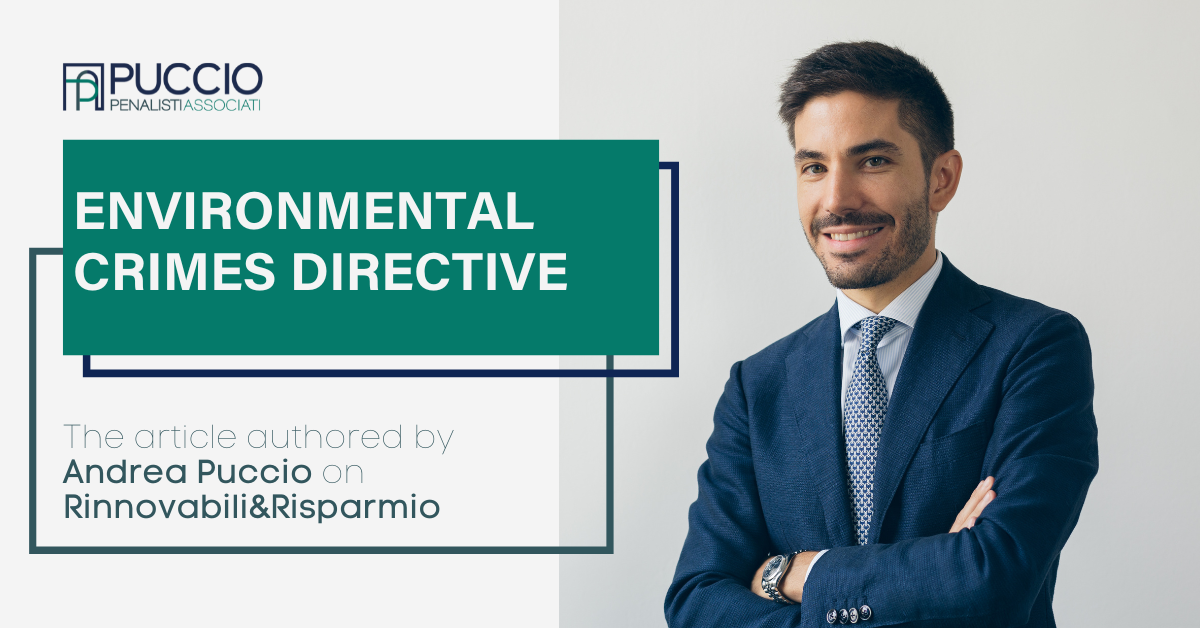Andrea Puccio analyzed, in an in-depth piece published on Rinnovabili&Risparmio, the implications of the new European directive on environmental crimes.
The European Parliament approved, on February 27th of last year, the proposal for a Directive on environmental crimes and strengthening the protection of ecosystems.
This directive aims to harmonize the criminal laws of Member States to ensure more effective environmental protection, creating a coordinated system to combat environmental crime.
The directive introduces new offenses with harsher penalties and extended statutes of limitations for individuals, while for legal entities, it entails a significant increase in fines with the possibility of additional corrective measures such as judicial supervision and dissolution of the entity.
To ensure the effectiveness of these measures, the European legislature calls for improved training for national judicial and police authorities and implementation of investigative tools, as well as increased cooperation between national authorities and those of the European Union. Member States will be required to develop national strategies against environmental crimes and monitor the effectiveness of the measures adopted.
The transposition of the directive into national law must take place within two years of its entry into force and will likely result in an overall tightening of sanctions, particularly for entities.
To read the full article, click here
